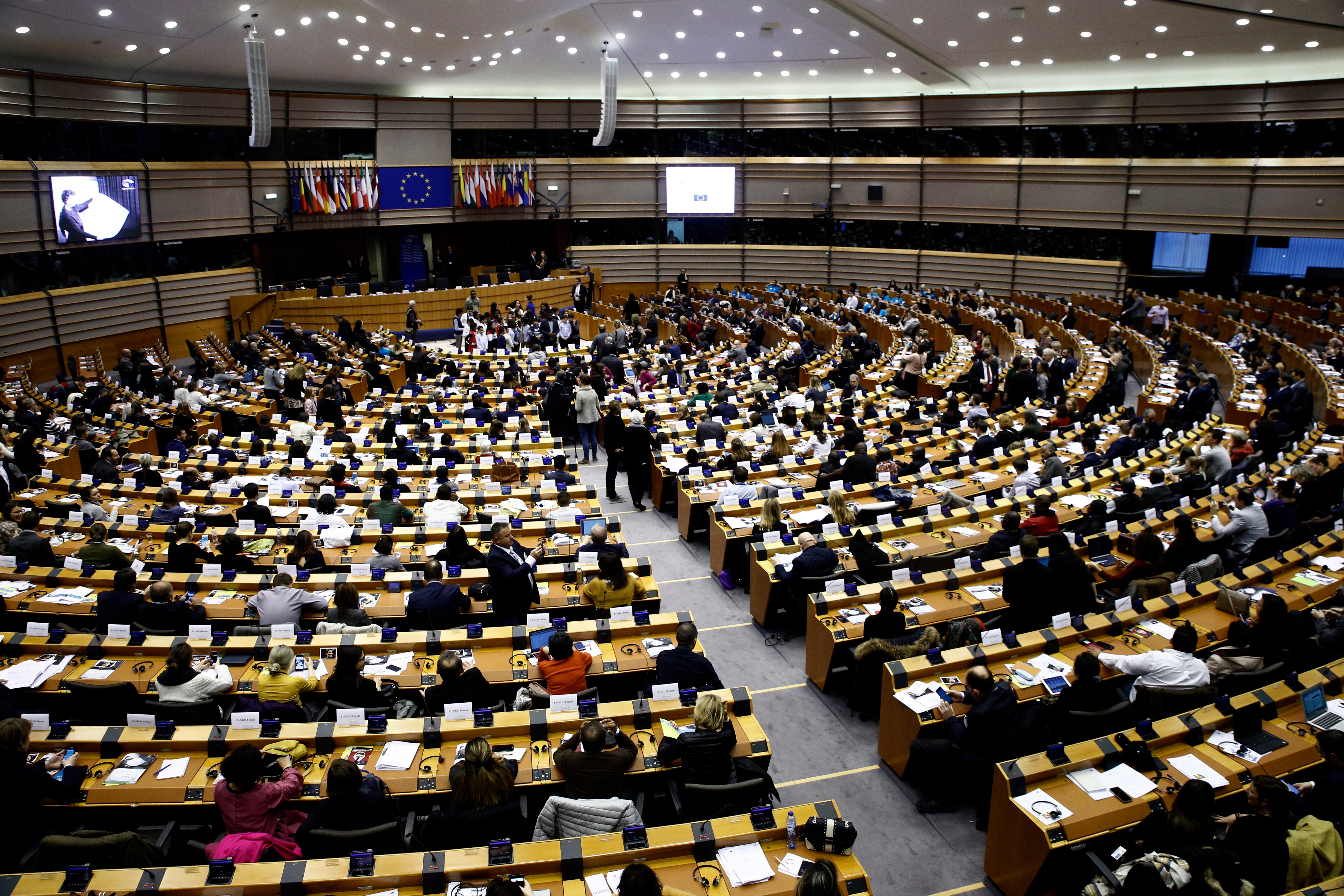Trilogue negotiations in the EU
by Emma Vivian on 18 Mar 2024
Three key EU institutions - the European Commission, the European Parliament, and the Council of the European Union - walk into a room. It sounds like the start of a bad joke, but trust us, it's anything but! They're there to work through laws, policies, and regulations that impact the lives of over 500 million Europeans. In this blog, we're going to lift the curtain on trilogue negotiations and shed light on why this resolution is useful for the swift functioning of EU policy making.
The EU legislative process
The EU is famous for many achievements, however when it comes to making quick decisions, it often opts for a scenic route instead of the expressway. Trilogues contribute to a swift conclusion to the legislative process, allowing concurrent discussions among the three institutions.
The process typically begins when the European Commission, the EU's executive branch, presents a legislative proposal. This proposal can range from data and privacy issues up to animal rights, as the Commissioners are a group of experts each responsible for a specific policy area. The proposal will then go through the "first reading" in both the European Parliament and the Council, the co-legislators. During this phase, both institutions will examine the text separately, and will each propose amendments where they see fit. The goal of this phase is to get the two parties’ opinions, to then move to the second phase of the legislative process.
Trilogues are not formally defined in the founding treaties of the European Union, and before they were introduced, the second phase would entail a "second reading" in both institutions. The European Parliament and the Council would exchange their positions and attempt to reconcile their differences through a series of negotiations, with each institution proposing amendments and revising their positions one after the other. This sequential approach could lead to delays and extended negotiation periods.
Trilogues were introduced to streamline this process, and also to ensure that the European Parliament, as the directly elected body representing EU citizens, had a greater role in shaping EU legislation. With trilogues negotiations, all parties can engage in negotiations simultaneously. The trilogue discussions aim to find compromises on the outstanding issues. Negotiators work together to bridge gaps between the European Parliament's and the Council's positions. If consensus is reached on all aspects of the proposal, a "trilogue agreement" is established. Once a trilogue agreement is reached, it is presented to both the European Parliament and the Council for approval. Typically, they adopt the agreement, and the legislative proposal becomes law.
What happens during a trilogue meeting?
Trilogue negotiations are informal discussions held between the European Parliament and the Council of the European Union, chaired by the co-legislator hosting the meeting. The European Commission assumes the role of a mediator or facilitator in these discussions, ensuring that the participants find common ground and enabling smoother decision-making in the legislative process. These negotiations follow their respective internal rules and are aimed at efficiently progressing on co-decision files. A central tool in trilogues is a four-column document that outlines the Commission's initial proposal, the positions of the Parliament and the Council, and the "compromise text" that eventually becomes the adopted version of the legislation. During trilogue meetings, the co-legislators (Parliament and Council) engage in debates to reconcile their positions and reach a consensus.
Are trilogues that important? The example of the AI Act
The EU's AI Act, which aims to regulate Artificial Intelligence based on its potential to cause harm, is a good example of the importance of trilogue negotiations. The Belgian EU Council Presidency was coordinating the negotiations as the co-legislator hosting the meeting. The case of the AI Act was rather unique, as the Commission came out with its proposal on regulating Artificial Intelligence before the growth in popularity of ChatGPT. This resulted in obvious discrepancies between the initial proposal and the positions of the Parliament and the Council. Trilogue negotiations were therefore necessary to contribute to regulating generative AI, and allow the Commission to add further dimensions to its original text.
Far from a joke
Trilogue negotiations in the EU are characterised by their informality and complexity, but this lack of structure does not make the process easier to navigate, particularly for a framework as complex and diverse as the European Union. Without formal definition in treaties, trilogues lack procedural clarity, leading to potential procedural disputes. Reaching consensus among the European Commission, Parliament, and Council involves navigating diverse interests and perspectives, often resulting in protracted negotiations. Additionally, the absence of a definitive resolution mechanism can leave crucial issues unresolved, requiring compromises that may weaken legislation.
Despite these complexities, trilogue negotiations play a vital role in expediting legislative outcomes and ensuring democratic representation. However, effective management of procedural ambiguities and stakeholder conflicts is essential to mitigate delays and enhance the effectiveness of trilogue negotiations in shaping EU policies.
In conclusion, trilogue negotiations are the unsung heroes of EU policy making, where collaboration and compromise shape laws and regulations that impact millions. Far from a joke, they are the engine driving the EU's legislative journey, ensuring that policies keep pace with a changing world.
Topics: European Politics, EU, Regulation






Comments